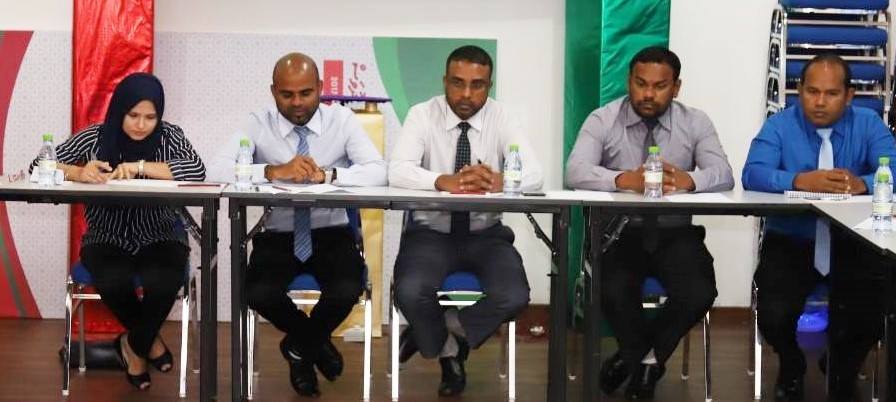Anti-corruption watchdog deflects blame on MMPRC scandal
The ACC blamed the authorities for failing to act after findings were shared in 2017.

19 Feb 2019, 09:00
The Anti-Corruption Commission on Monday defended its investigation report of the country’s biggest corruption scandal, in the face of fierce criticism over failure to follow the money trail and a nearly three-year delay in disclosing the findings.
The report published last Thursday exposed politicians, prominent businesses and top government officials who conducted transaction with SOF Pvt Ltd, a company that was used to funnel the bulk of US$90 million stolen from the Maldives Marketing and Public Relations Corporation.
In the aftermath of the report’s release, a former auditor general accused the ACC of omitting the names of several beneficiaries, including relatives of ACC members, and a protest march was held calling the removal of the five commissioners.
It emerged Sunday that the ACC president Hassan Luthfy was under investigation for suspected money laundering.
Become a member
Get full access to our archive and personalise your experience.
Already a member?
Discussion
No comments yet. Be the first to share your thoughts!
No comments yet. Be the first to join the conversation!
Join the Conversation
Sign in to share your thoughts under an alias and take part in the discussion. Independent journalism thrives on open, respectful debate — your voice matters.




